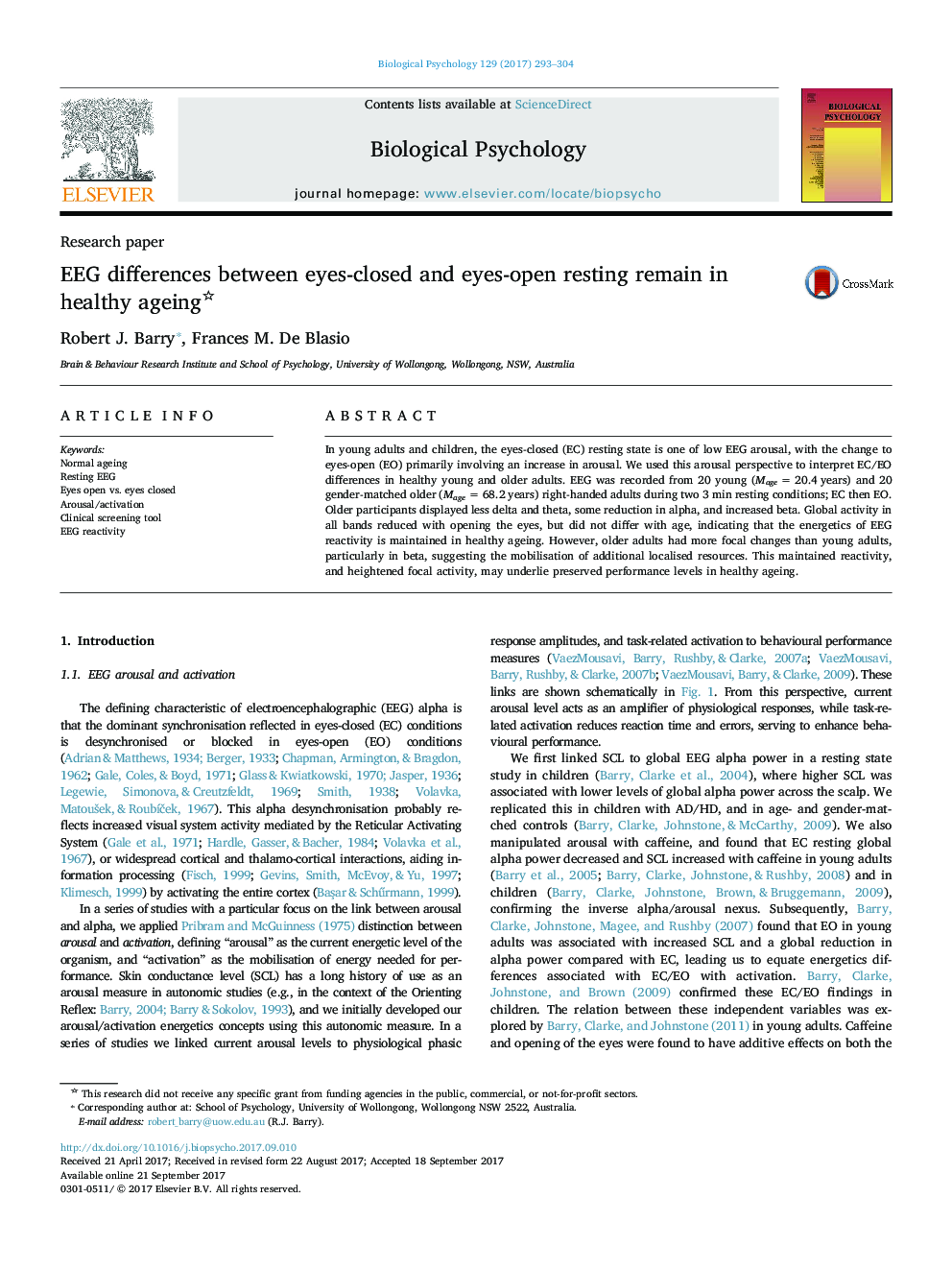| Article ID | Journal | Published Year | Pages | File Type |
|---|---|---|---|---|
| 5040362 | Biological Psychology | 2017 | 12 Pages |
â¢In older cf. young adults, delta, theta, & alpha reduced, while beta increased.â¢Global amplitude reduction in EO vs. EC did not differ between the groups.â¢Topographic alpha decreases in EO support a global arousal interpretation.â¢Ongoing cortical energetics & focal enhancement may support older adult performance.
In young adults and children, the eyes-closed (EC) resting state is one of low EEG arousal, with the change to eyes-open (EO) primarily involving an increase in arousal. We used this arousal perspective to interpret EC/EO differences in healthy young and older adults. EEG was recorded from 20 young (Mage = 20.4 years) and 20 gender-matched older (Mage = 68.2 years) right-handed adults during two 3 min resting conditions; EC then EO. Older participants displayed less delta and theta, some reduction in alpha, and increased beta. Global activity in all bands reduced with opening the eyes, but did not differ with age, indicating that the energetics of EEG reactivity is maintained in healthy ageing. However, older adults had more focal changes than young adults, particularly in beta, suggesting the mobilisation of additional localised resources. This maintained reactivity, and heightened focal activity, may underlie preserved performance levels in healthy ageing.
